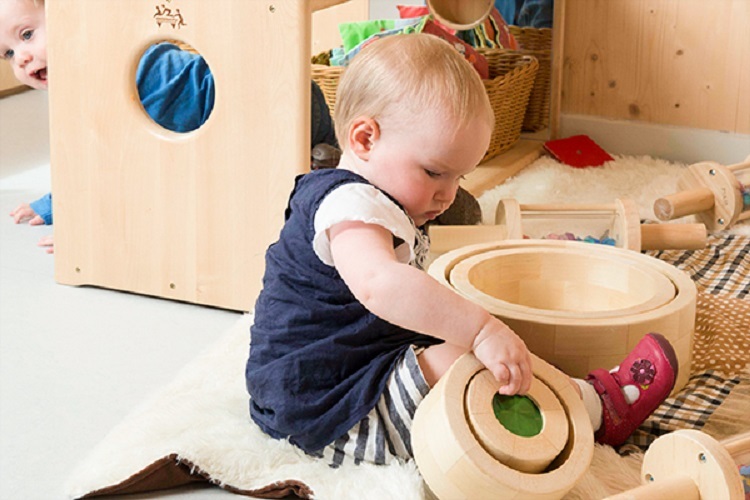What Is Heuristic Play In Childcare, And Why Is It Important?
Heuristic play is a term coined by Elinor Goldschmied and Sonia Jackson, both psychologists and social workers in their book People Under Three. It sounds more complex than it is. If you have ever played with a child who chose to play with a spatula rather than a new doll or the box their action figure came in, that is heuristic play.
The term to describe the type of interaction children have with everyday objects rather than with toys. There are hundreds of toys on the market – they are colourful and loud, and they come in a variety of materials. As wonderful as many of them are at stimulating children’s senses, they don’t provide the sensory properties necessary for problem-solving and creative thinking.
Table of Contents
The Importance of Heuristic Play
Children’s natural curiosity about objects is the heuristic play’s central feature. This is a naturally occurring activity that children go through when they reach the age of year. It starts out as children enjoying exploring and feeling different items. It later becomes about experimenting to find out what it can do or what they can do with it. Children will grab any everyday object and see if it can be stacked and manipulated, filled and handled, gathered and rolled, and transported and handled. At this age, the children are moving more freely and therefore, the play item is also moving.
A box of safe objects should be provided to allow children to explore. It can include anything from measuring spoons and hair clips to pinecones, shells, corks, feathers, and cloths. 30-minutes of heuristic play is more than enough; adults should simply sit nearby and let the children guide their play.
The Benefits of Heuristic Play
1. Stimulates Imagination & Creativity
Heuristic play revolves around imagination and creativity. When a child plays with a toy they know muscle memory takes over because they know what to expect when they interact with various aspects of it. Heuristic play is open-ended and gives children the opportunity to explore and use their imagination and creation.
2. Supports Gross Motor Skills
Small children need to explore their senses to support gross motor skills and cognitive development. This can happen on a wider scale through heuristic play.
3. Stimulates Critical Thinking & Senses
Children learn that pressing buttons create sounds. But heuristic play teaches children that they can create different sounds by banging objects against different surfaces or objects. They use their senses and develop critical thinking skills as they explore this for themselves. To find out more about the abilities kids use to decode words, visit this website: https://colonialsun.com/
4. Promotes Conceptual Learning
Heuristic play provides an opportunity to explore math concepts. They can investigate how different objects of different shapes roll or don’t, how they can or can’t be stocked, some things can be filled and some can’t, some items are lighter or heavier, etc.
5. Encourages Independence
Independence is an important lesson for children to learn, and heuristic play is all about allowing children to explore as they want. It’s about testing their theories through trial and error and interacting with objects the way they want to interact with them.
Final Thoughts
Heuristic play offers many benefits, but the key is it helps children develop emotionally, physically, and mentally as they explore the physical world. Whether you’re looking for a childcare centre in Taylors Hill such as Goodstart Taylors Hill, or somewhere else in Australia, you look for a centre that embraces heuristic play.

